The Scanlon Foundation’s index of social cohesion in Australia came out last month and was the worst ever recorded.
Misha Ketchell, Editor at The Conversation, reckons he knows what’s going on:
“What’s going wrong? One factor is the ubiquitous technology that primes us for intolerance. Social media rewards strong positions and self-righteous anger”, Ketchell writes.
“The smartphones in our pockets claim to increase our connections with “friends” but they are optimised for moral grandstanding. It’s making us lonely and miserable”.
“It doesn’t have to be that way. Real social cohesion comes from the slow and unglamorous work of listening to people carefully, paying them respect and giving them the benefit of the doubt”, he claims.
Righto Misha. Smartphones and social media have been around for more than a decade, yet it’s only now that they have caused social cohesion to collapse.
Gee, it couldn’t have something to do with cramming 518,000 new migrants into Australia in a single year and causing the worst rental crisis in living memory?
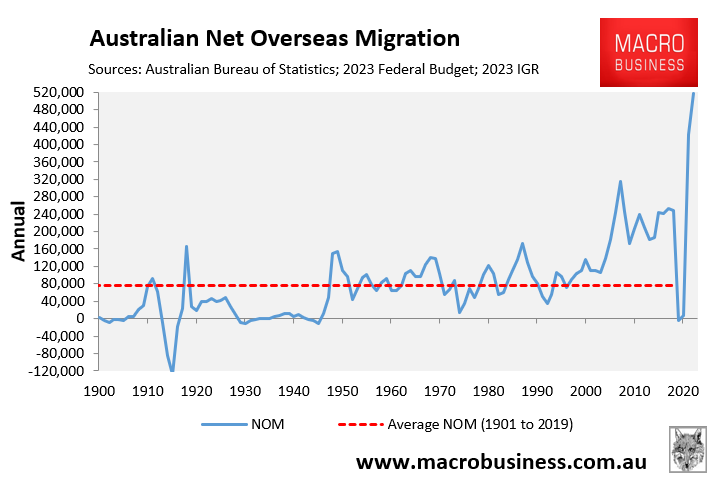
Have you ever thought, Misha, that Australians don’t take to kindly to seeing themselves or their friends struggling to put a roof over their heads:
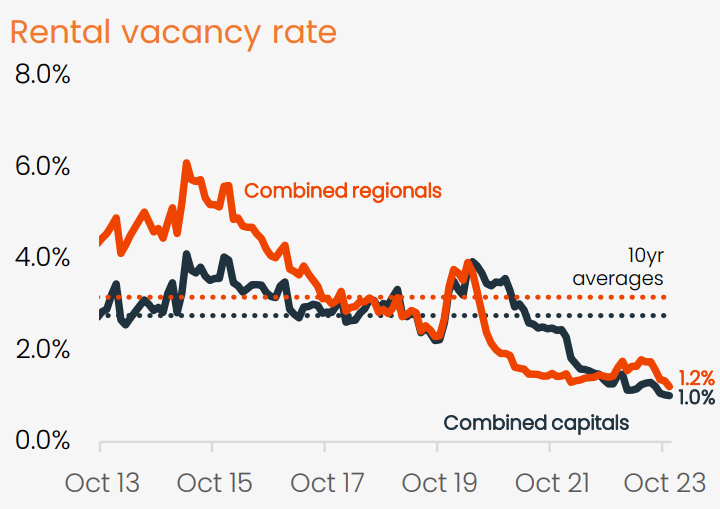
Source: CoreLogic
Being plunged into rental stress:
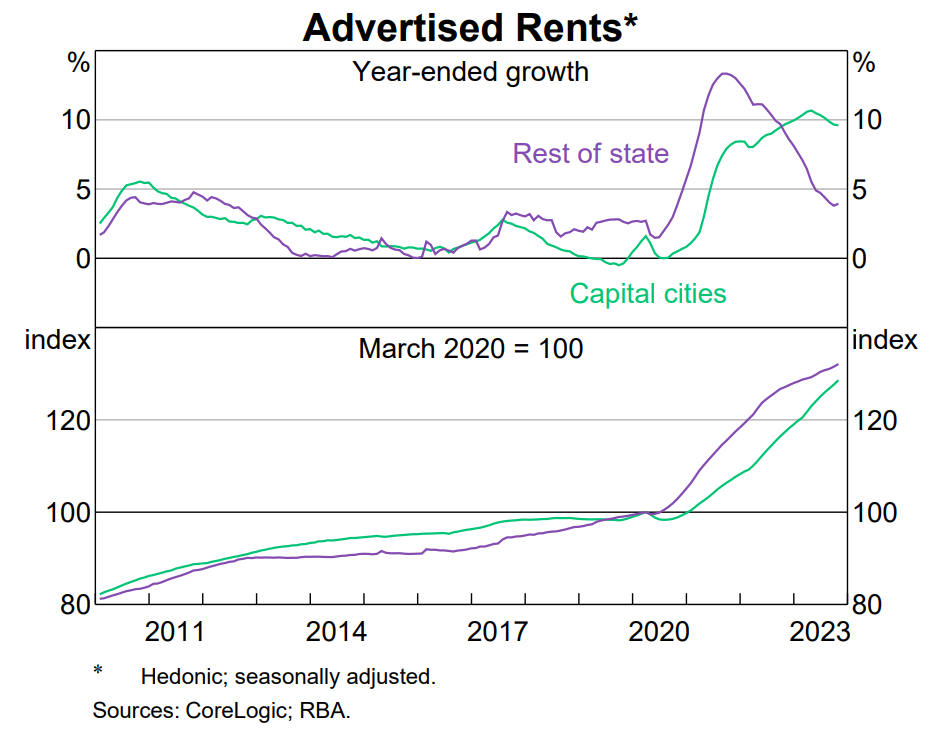
Or being forced into group housing or homelessness:
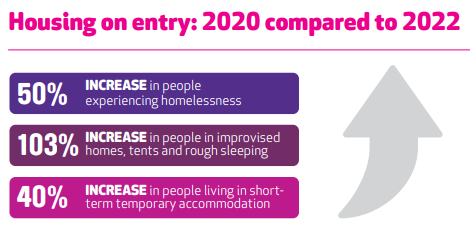
Source: National Shelter
Maybe rapidly increasing the number of people needing housing when supply is scarce isn’t a great way to increase social cohesion?
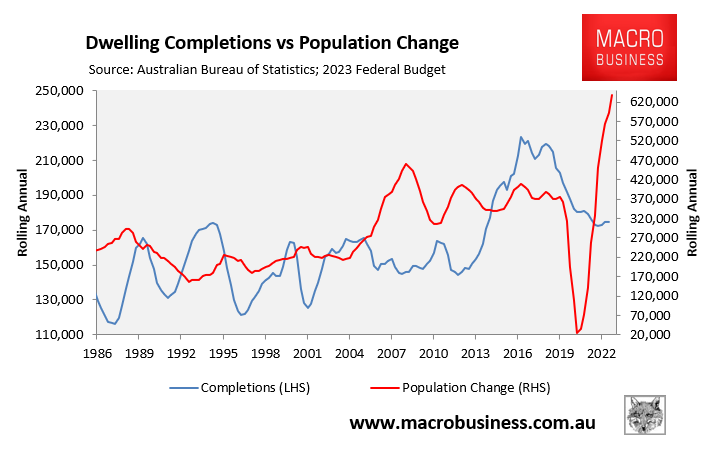
It is a doubly bad idea when voters have repeatedly told governments that they do not support high levels of immigration:
- Newspoll (2018): 56% want lower immigration;
- Essential (2018): 54% believe Australia’s population is growing too fast and 64% believe immigration is too high;
- Lowy (2018): 54% of people think the total number of migrants coming to Australia each year is too high; and
- Newspoll (2018): 74% of voters support the Turnbull government’s cut of more than 10% to the annual permanent migrant intake to 163,000 last financial year.
- The Australian Population Research Institute (February 2023): 70% of Australians wanted lower levels of immigration (of which 42% wanted significantly lower or zero immigration).
- QandA (August 2023): 65.4% want immigration cut to cope with pressure on housing.
- Resolve Political Monitor (December 2023): 62% believe immigration levels are too high.
- Freshwater Strategy (December 2023): 61% believe immigration levels are too high.
So much for “listening to people carefully [and] paying them respect”.
Now the Albanese government is gaslighting voters into believing that historically high 250,000 net overseas migration is “normal” and “sustainable”, which as Crispin Hull writes will guarantee less social cohesion:
Voters must get this right: 70,000 is normal; 250,000 is a mad squandering of the living standards of all but a tiny elite of Australians.
In the past, migration contributed immensely to Australia, economically and socially. And was valuable when Australia was under-populated. Now it is not.
The trouble here is that immigration is not seen as a hard economic and environmental issue. Too many people see it as a leftist right-thing-to-do thing, especially in the ABC. Supporting high immigration means you are in favour of multi-culturalism, diversity, anti-racism, tolerance etc etc.
No, you are not. You are condemning the bulk of people, including all those diverse people who came here recently to ever increasing pressure.
Accepting the new reference point of 250,000 people a year, means damning young people to renterdom; commuters to congestion; koalas to die to make way for housing; and condemning Australia to be a net food importer, and on and on it goes.
Without an absolute numbers limit set by Parliament on the basis of just topping up low fertility to zero or low population growth, Australians will be in danger of falling into the arms of dog-whistling racists who will play the immigration card for the worst reasons.
If that happens all of the pro-diversity but mis-guided pro-high-immigration proponents will have defeated the very things they stand for.
But yeah Misha, let’s blame social media and smartphones. Because it would be “racist” or “xenophobic” to dare mention extreme levels of immigration, which unambiguously worsens inequality, housing stress and living standards.

